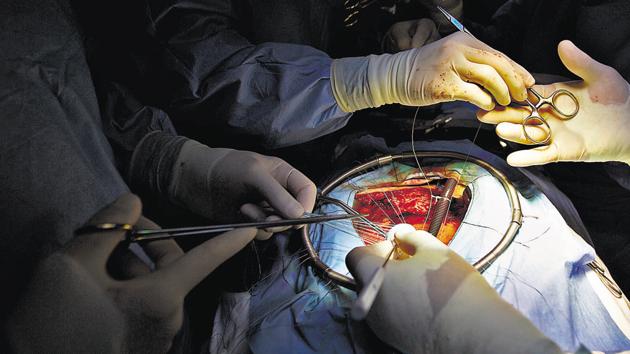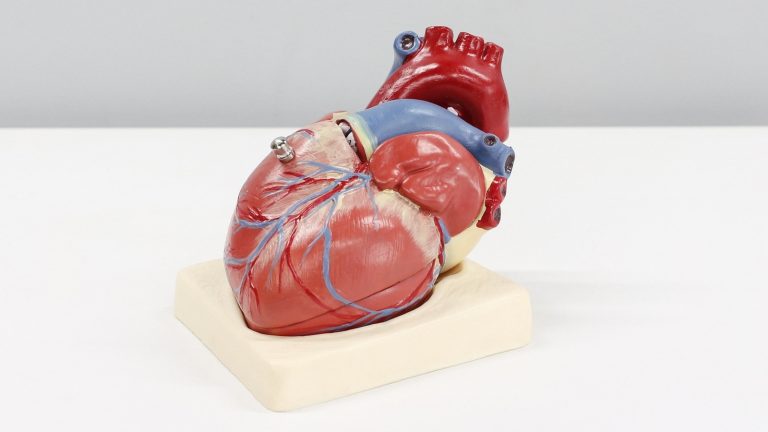A newer technique called minimally invasive heart disease surgery aims to alleviate the trauma connected to open heart surgery. It has several benefits, such as less pain, smaller incisions, and faster recovery periods, but before agreeing to this procedure, there are some important considerations you should take into account.

In an interview with HT Lifestyle, Dr Shrirang Ranade, Head of Department and Consultant – Cardiothoracic and Vascular Surgeon at Manipal Hospital in Pune’s Baner, shared, “Small incisions of 2-3 inches help a surgeon access the heart during minimally invasive cardiac surgery. . When MIS surgery is used in place of standard open heart surgery, it can effectively treat a variety of heart conditions with less discomfort and faster recovery times. While traditional heart surgery involves cutting the breastbone (sternotomy), minimally invasive heart surgery is usually performed through tiny incisions between the ribs. This approach reduces scarring and speeds healing. This method can be used for coronary artery bypass grafting, valve replacement or repair, and specific repairs for congenital heart diseases.
General health and specific heart problems are important considerations when choosing a candidacy for this type of surgery. Dr. Shrirang Ranade revealed, “Not all patients are candidates for minimally invasive procedures. Factors such as the complexity of the heart disease, previous heart surgeries and underlying health conditions such as obesity or lung disease can influence the decision. A complete examination by a cardiac surgeon is necessary to choose the best technique. A shorter hospital stay is one of the main benefits of minimally invasive heart surgery. After standard surgery, recovery takes a week or more, but many patients can go home after a few days. Additionally, the risk of infection, blood loss and surgical complications is reduced due to the smaller incisions.

The expert warned: “However, as with any surgical procedure, there are potential risks. These include bleeding, anesthesia-related responses, or heart or lung problems during surgery. It is important to discuss the potential risks and benefits in detail with doctors. Most patients recover more quickly from minimally invasive heart surgery and return to their usual activities within a few weeks. However, it will be important to follow the treatment plan provided and make lifestyle changes to maintain long-term heart health.
Lending his expertise, Dr Ved Prakash, Senior Consultant and Head of Cardiothoracic and Vascular Surgery at Sarvodaya Hospital, Sector 8, Faridabad, explained, “Minimally Invasive Cardiac Surgery (MIHS) involves smaller incisions than the traditional open heart surgery. Surgeons use advanced techniques, including small tools and cameras, to perform complex heart procedures. Common procedures include heart valve repair/replacement, coronary artery bypass grafting, and atrial septal defect closure.
Advantages over traditional surgery:
- Smaller incisions: Typically, incisions are 3 to 4 inches in size compared to the 6 to 8 inch cuts in traditional surgery.
- Shorter recovery time: Recovery is faster, with many patients returning to normal activities within a few weeks.
- Less pain and scarring: Reduced incision size results in less pain and scarring after surgery.
- Lower risk of infection: Smaller incisions reduce the risk of infection compared to the larger, open incisions of traditional surgery.
Risks and complications:
Dr Ved Prakash said, “Like any surgical procedure, MIHS carries risks such as infection, bleeding, stroke or irregular heartbeat. The level of risk depends on your health, your age and the specific procedure.
Who is a candidate?
According to Dr. Ved Prakash, not everyone is a candidate for minimally invasive surgery. Factors such as the complexity of the disease, previous surgeries, or certain health conditions may require traditional open heart surgery.

Preoperative preparation:
Dr Ved Prakash informed, “You will undergo a series of tests, including blood tests, images and heart function tests, to ensure that you are fit for surgery. »
Post-operative recovery:
- After the operation, you will spend time in intensive care for monitoring. The length of hospital stay is generally shorter than for open heart surgery, often around 3 to 5 days.
- Full recovery usually takes about 4 to 6 weeks. You may need cardiac rehabilitation to improve heart function.
Lifestyle changes after surgery:
Dr. Ved Prakash concluded, “Even after successful surgery, it is crucial to maintain heart health through diet, exercise and medications (if prescribed). Adopting a heart-healthy lifestyle can prevent future heart problems.
Disclaimer: This article is provided for informational purposes only and is not a substitute for professional medical advice. Always seek the advice of your doctor with any questions you may have regarding a health problem.


